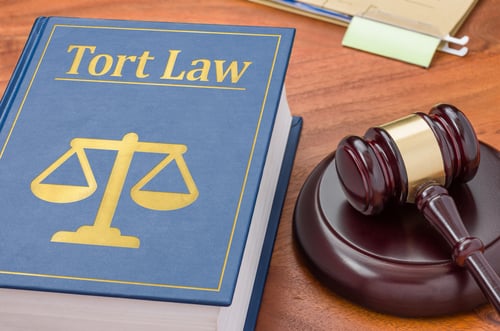Former college student who claims he was beaten by officers loses ‘loophole’ case in Supreme Court

Image from Shutterstock.com.
The U.S. Supreme Court ruled Thursday in a case that could bar a former college student’s constitutional claims against the government because of a ruling on his federal tort claims.
The case could create “a huge loophole” that allows law enforcement officers and other officials who violate Americans’ constitutional rights to escape accountability for their actions, the Institute for Justice said in a September 2020 press release that previewed the case.
The institute represented James King, who said he thought he was being mugged when plainclothes officers mistook him for a fugitive and took his wallet. King ran, and he was beaten when the officers, part of a joint federal state task force, caught up with him, according to the Institute for Justice.
King was a 21-year-old college student at the Grand Valley State University in Michigan at the time of the 2014 incident, according to previous coverage by the Detroit News.
Two provisions of the Federal Tort Claims Act were at issue in King’s case, Justice Clarence Thomas wrote in a Feb. 25 opinion for the unanimous court. One provision requires plaintiffs to establish that the federal government employee sued would be liable under applicable state law. The second, called the “judgment bar,” bans lawsuits involving the same subject matter as the tort claim after a court enters a judgment on the merits.
The trial court dismissed King’s tort claims because the officers were protected by Michigan governmental immunity rules. The federal government argued that the ruling was on the merits, which would mean that the judgment bar kicked in to ban King’s constitutional claims.
Thomas concluded that the trial court’s decision on immunity was a decision on the merits, which triggered the judgment bar rule.
In a concurrence, Justice Sonia Sotomayor agreed that the dismissal was on the merits. But she said the court did not decide whether claims brought in the same lawsuit are barred under the judgment bar rule.
“I write separately to emphasize that, while many lower courts have uncritically held that the FTCA’s judgment bar applies to claims brought in the same action, there are reasons to question that conclusion,” she wrote. “This issue merits far closer consideration than it has thus far received.”
In King’s case, the tort claims were dismissed because the officers did not subjectively have bad faith. But his constitutional claims require only a showing that the officers’ behavior was objectively unreasonable, Sotomayor said.
If King’s constitutional claims are barred, “a jury will never decide whether the officers violated King’s constitutional rights when they stopped, searched and hospitalized him,” Sotomayor said.
The case is Brownback v. King.
Hat tip to SCOTUSblog.



